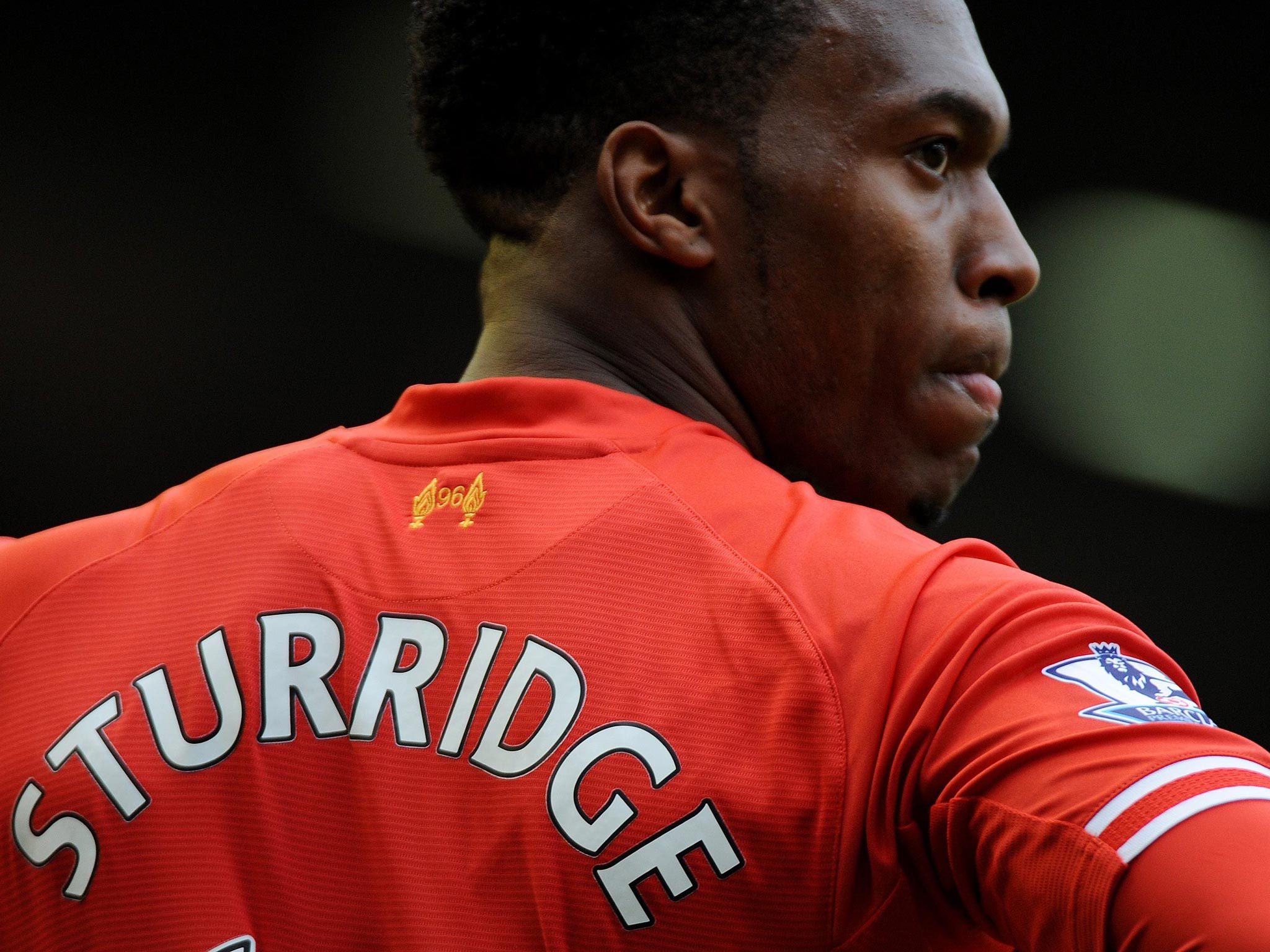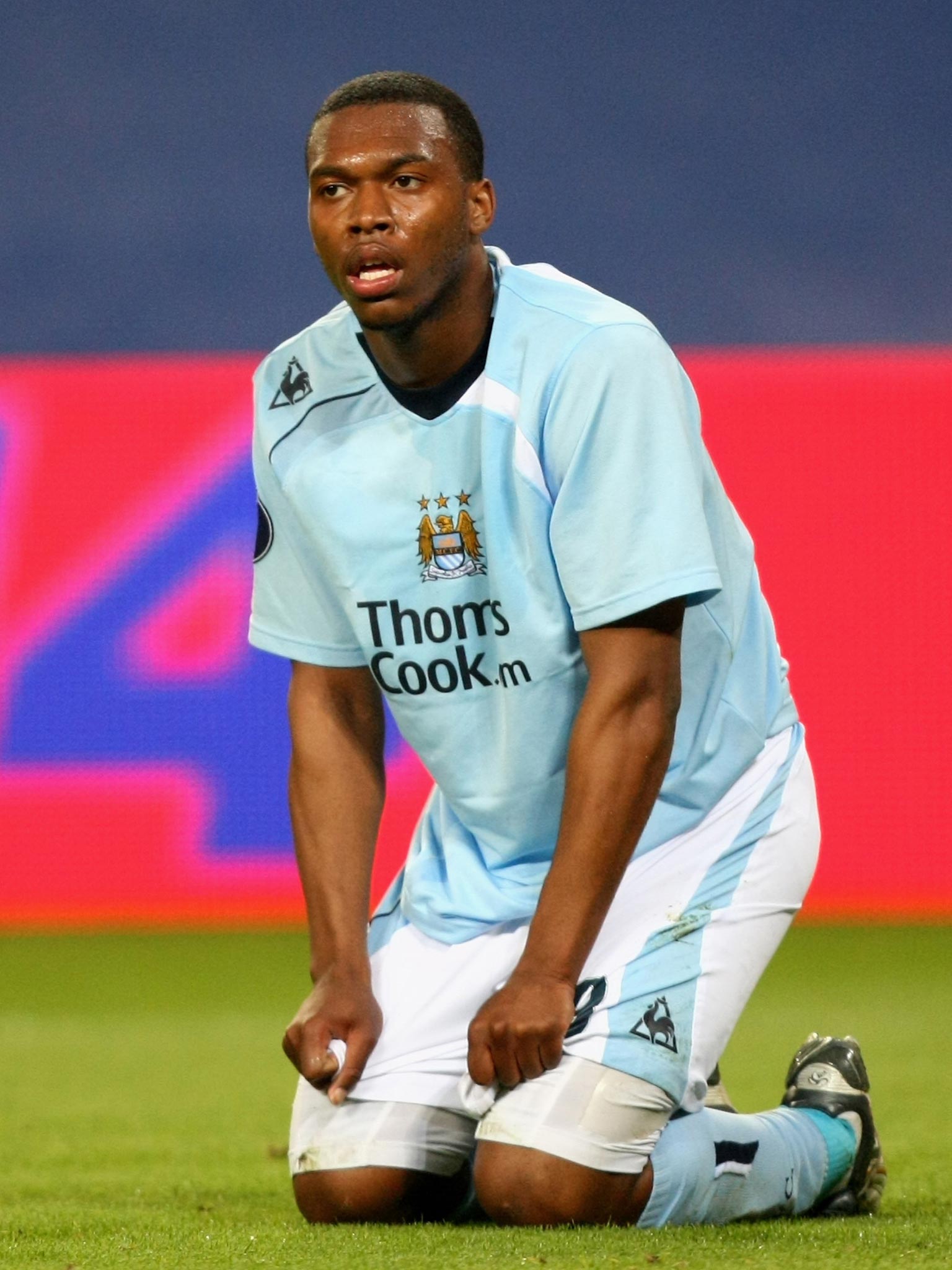Daniel Sturridge: A sense of belonging bearing fruit for Liverpool striker
From Villa to City to Chelsea, Daniel Sturridge has struggled to find a settled home in his football life... until now. Ian Herbert examines a complex soul who’s discovered happiness at Liverpool

You certainly wouldn’t bet against Daniel Sturridge being the headline player of this weekend – delivering a goal sweeter than any of the 20 he has found in 25 Premier League games this season, to deliver Liverpool their biggest blow in the title race and grievously wound his old club, Manchester City.
Football has a habit of conjuring outcomes like that and if Sturridge should strike then there will be evidence, buried in the mists of time, that City only have themselves to blame. The established narrative of Sturridge’s departure from east Manchester casts him as the overdemanding teenager spurred on by overdemanding advisers – and the second part of that assessment has validity. But the unvarnished truth is that City “fucked up” where Sturridge was concerned, to quote a club insider from that time.
It was the first year of the Abu Dhabi era, and Sturridge, on a salary of £1,000 a week, had been allowed to enter the final year of his contract when Chelsea, with a predator’s eye for how easily collectable the teenager was, came calling with an offer of nearly £65,000 a week in 2009. From a Roman Abramovich perspective, the sums added up very well: a £3m development fee plus £3.4m annual salary over four years comes well shy of a £20m striker, yet a straight transfer market deal for someone of Sturridge’s obvious quality would certainly have cost Chelsea that much. Aware that they had given Chelsea a powerful angle, City resigned themselves to his departure, though their rejection of the Sturridge camp’s demands of £70,000-a-week salary for a player who had started a handful of games also stemmed from the immense prevailing pressure to sign the world’s best available talent “to make us a massive club very quickly”, as the insider put it. Carlos Tevez, who some sources say cost £47m, arrived just as Sturridge left.
City’s counter offer to Sturridge of £45,000 a week was designed only to help them prove at an arbitration hearing that he was worth the £10m compensation fee they were demanding. Suddenly he was gone, consigned to a move which sidelined him from regular football, sapped his confidence and, in his darkest moments, left him a psychologically broken player. The then City manager Mark Hughes was deeply frustrated to lose him.
The story of Sturridge’s rehabilitation at Liverpool by Brendan Rodgers into a player with a strike rate second only to Luis Suarez in the Premier League has been one of the stories of the season and a significant part of the credit must be ascribed to his new manager. It was Rodgers who tried to understand what went on in the head of Sturridge and appreciated the insecurity to be found there.
Sturridge’s Chelsea experience – 31 league starts in three years – left him so low on belief that the surroundings of Bolton Wanderers assumed huge importance when Owen Coyle took him there and finally gave him his chance and the No 15 jersey in 2011. It is why Sturridge has worn that number on his back to this day.
There is the same burning introspection in the 24-year-old that you will find in another centre-forward who thought that Stamford Bridge would change his world – Fernando Torres – and though Sturridge’s sometimes casual demeanour on the field creates the impression that he is the debonair foil to the Suarez intensity, off the field those personas flip. Sturridge is the one shaking off the baggage of difficult formative years, when he moved around Aston Villa and Coventry City before reaching Manchester, and a Chelsea career so doomed that when Rafael Benitez arrived as interim manager in November 2012 he received express instructions to keep the player out of the first-team picture. Personally and professionally, the Spaniard did not see what the problem was.

“I was in my shell a lot at Chelsea,” Sturridge told the Liverpool podcast, The Anfield Wrap, a few months back. “It’s hard to explain, but I was never myself in interviews. I always felt like I wasn’t relaxed there. I always felt that I couldn’t be myself. A lot of people are extremely serious and maybe in the past I’ve tried to be serious and someone that I wasn’t.” But he is a very serious soul. Equipped, perhaps, to deal with the insecurities of professional sport by the Christian faith he picked up from his family, but by no means immune.
Other influences in the player’s life have been challenging, some of the clubs who have employed him will tell you. He has been guided and represented by his father, Michael, and his uncle, the former Derby County player Dean Sturridge, who have been more demanding than most agents, at times. An insistence in some contractual discussions that Sturridge must play a central role has been a particular bone of contention.
Chelsea were told, in no uncertain terms, that their deployment of Sturridge as a winger was the equivalent to asking the left-handed Rafael Nadal to play tennis with his right hand. They would never contemplate the idea of a player being guaranteed a central role. It is understood that the Premier League may have ruled out a central forward’s position being enshrined in Sturridge’s contract because it would have been unenforceable.
Rodgers always felt that he could turn Sturridge into the same player whose departure Hughes had rued so much, if only he could bring him under his own influence, instead. He seems to have done that, even though there are times when Sturridge will push it and when Rodgers – who always calls it very straight in conflict situations – will push right back. The manager was unhappy that Sturridge’s eagerness to play 90 minutes for England against Germany while carrying a thigh strain last November left him unfit to play at Goodison Park four days later. He questioned Sturridge’s commitment. But one professional who has known Sturridge since he was a teenager says his “edge” is a benefit. “Like many other talented players, he’s got an edge and an ego. That goes with the territory,” he says.
Freed from the old internal torpor, Sturridge appears to have found a home at last and has emerged clear-headed about what he wants to achieve for Liverpool. “When I was playing as a winger at Chelsea I was overthinking it because I wasn’t used to doing it,” he said. “It’s about that split second when you have to decide whether you do this or do that, whereas now I’m just playing on instinct. I’m just doing the natural thing, playing my natural game and doing things off the cuff.”
His ability to articulate the psychology of scoring – rare in a footballer – was best revealed in a fine interview with the author and Liverpool FC magazine journalist Simon Hughes last year. It is “that anticipation of knowing where the ball is going to land in front of you and the release of emotion when it ends up in the back of the net” which is sublime, Sturridge told Hughes. “The pleasure is only made greater now because of the noise of the crowd when it happens.” And to think that Sturridge had nurtured a rather ominous feeling about the Anfield club, ever since he was an 11-year-old playing for Aston Villa against Liverpool and being marked by midfielder Jay Spearing, (then a Liverpool centre-back, now at Bolton) in an 11-2 defeat.
In many ways, Sturridge crystalises the value of getting the psychology right, which Rodgers sees so clearly. One observer, an insider from the player’s City days, has watched Sturridge’s journey on through the game very closely and responds emphatically to the question of whether Liverpool have developed new technical talents in the forward. “No,” he says. “He always had it. But it’s now that he is applying it every week.”
City’s manager, Manuel Pelligrini, is about to discover how serious a misjudgement his club made in allowing Daniel Sturridge to get away.
Join our commenting forum
Join thought-provoking conversations, follow other Independent readers and see their replies
Comments